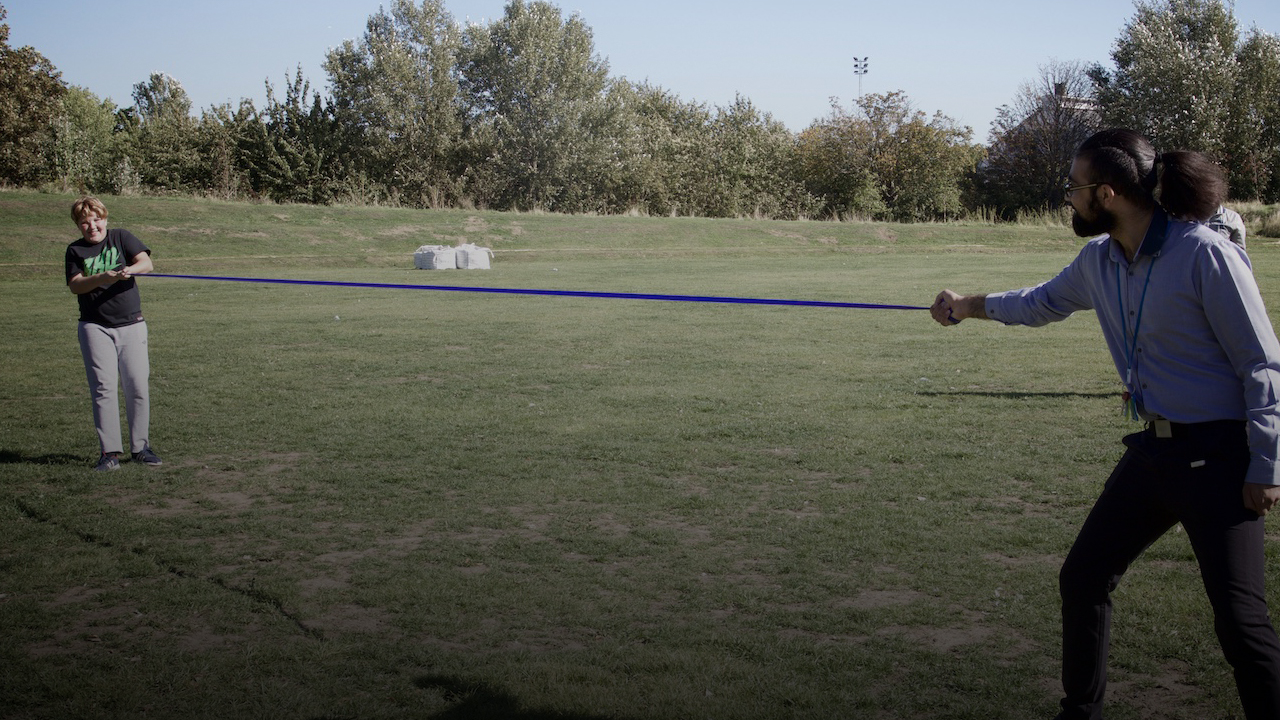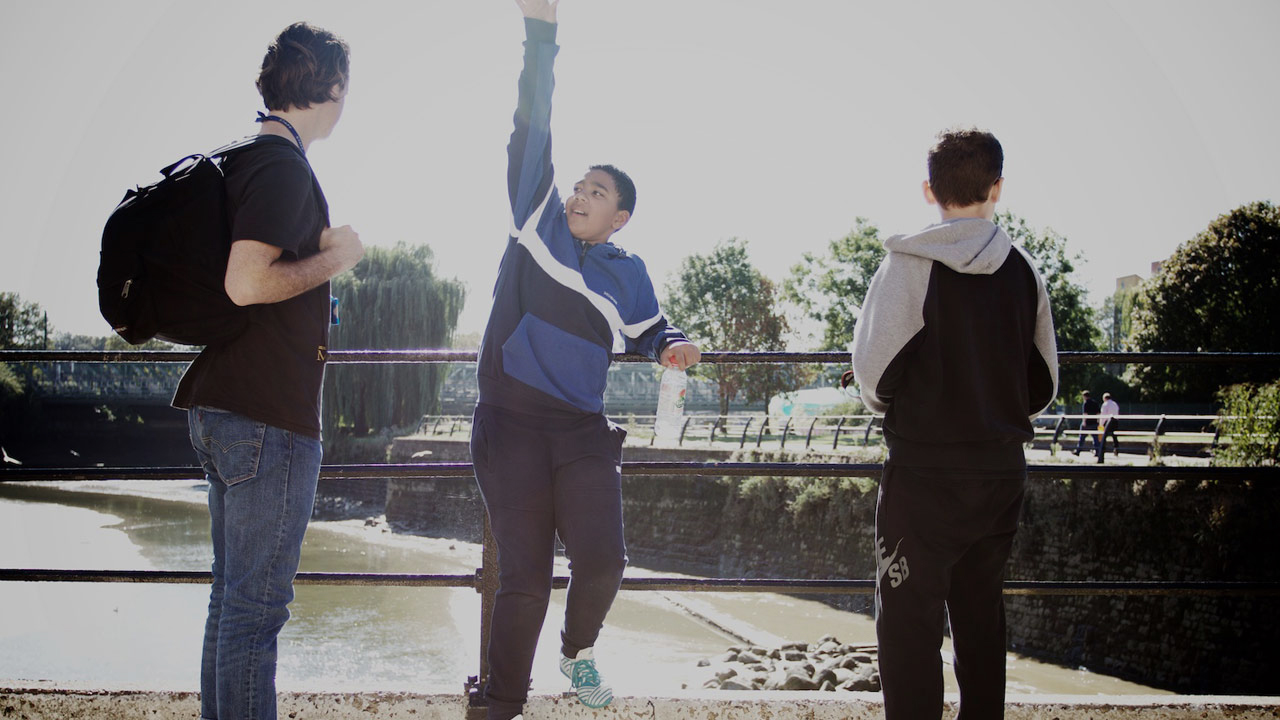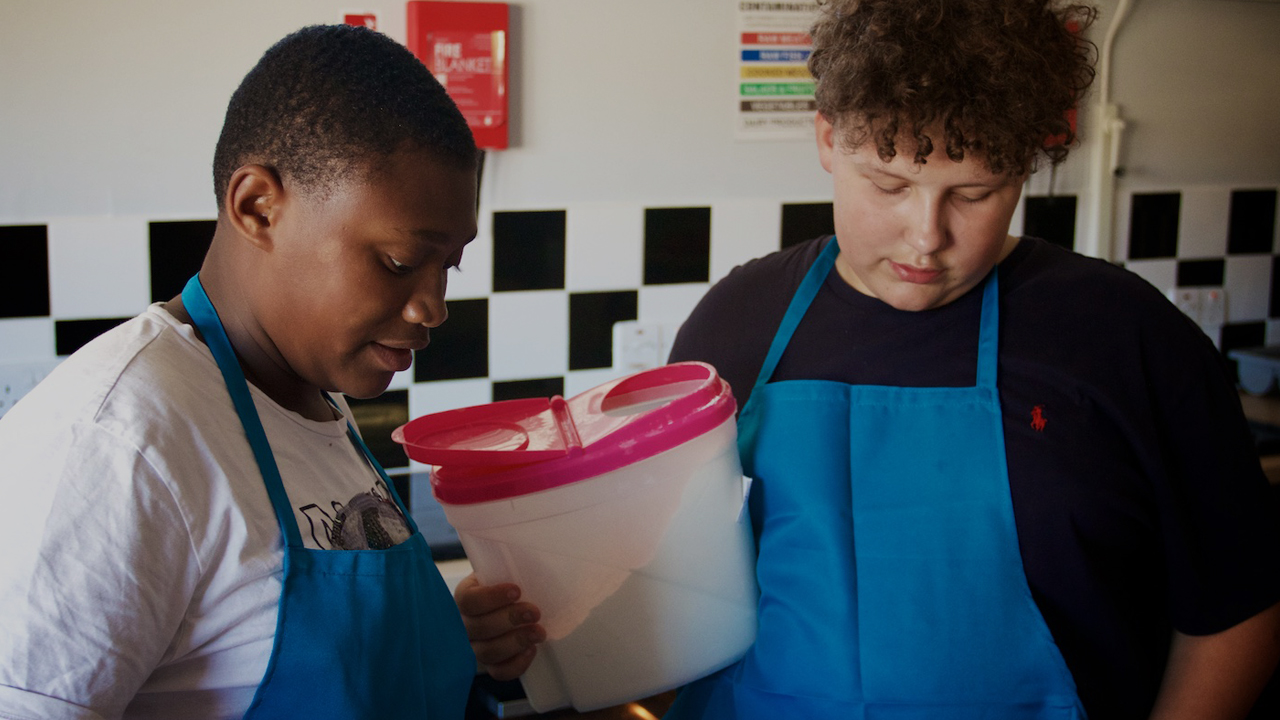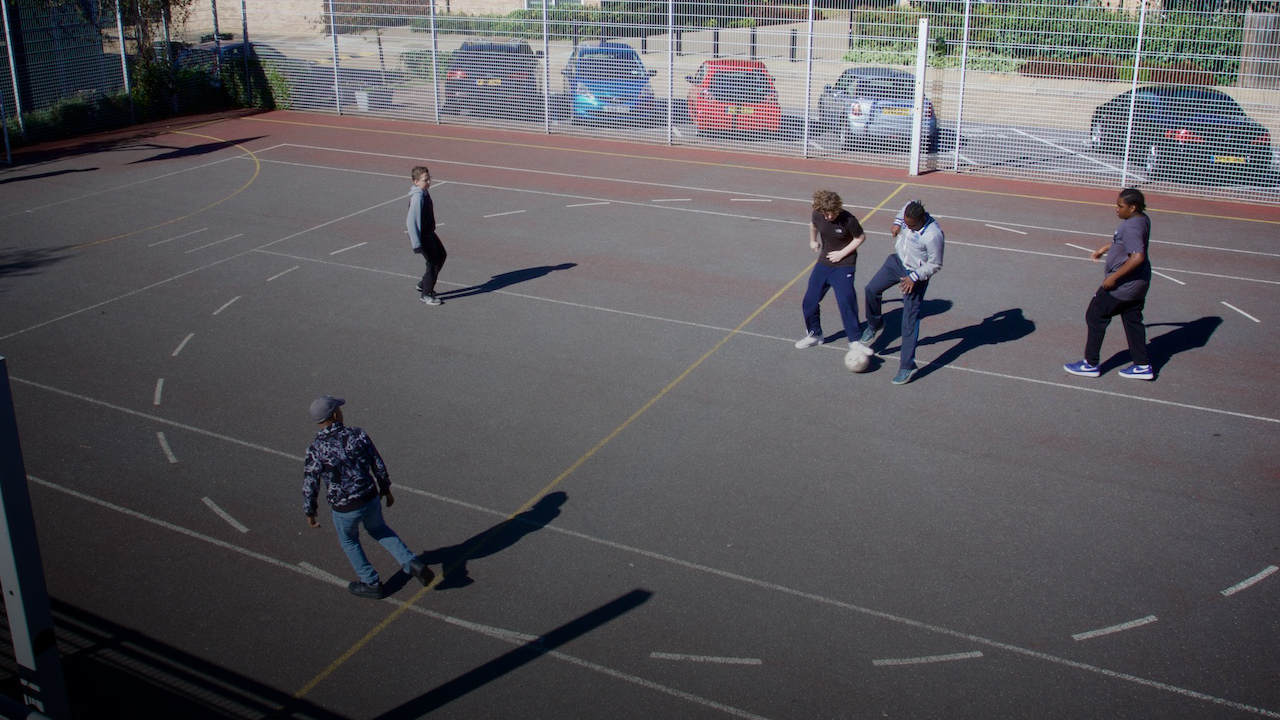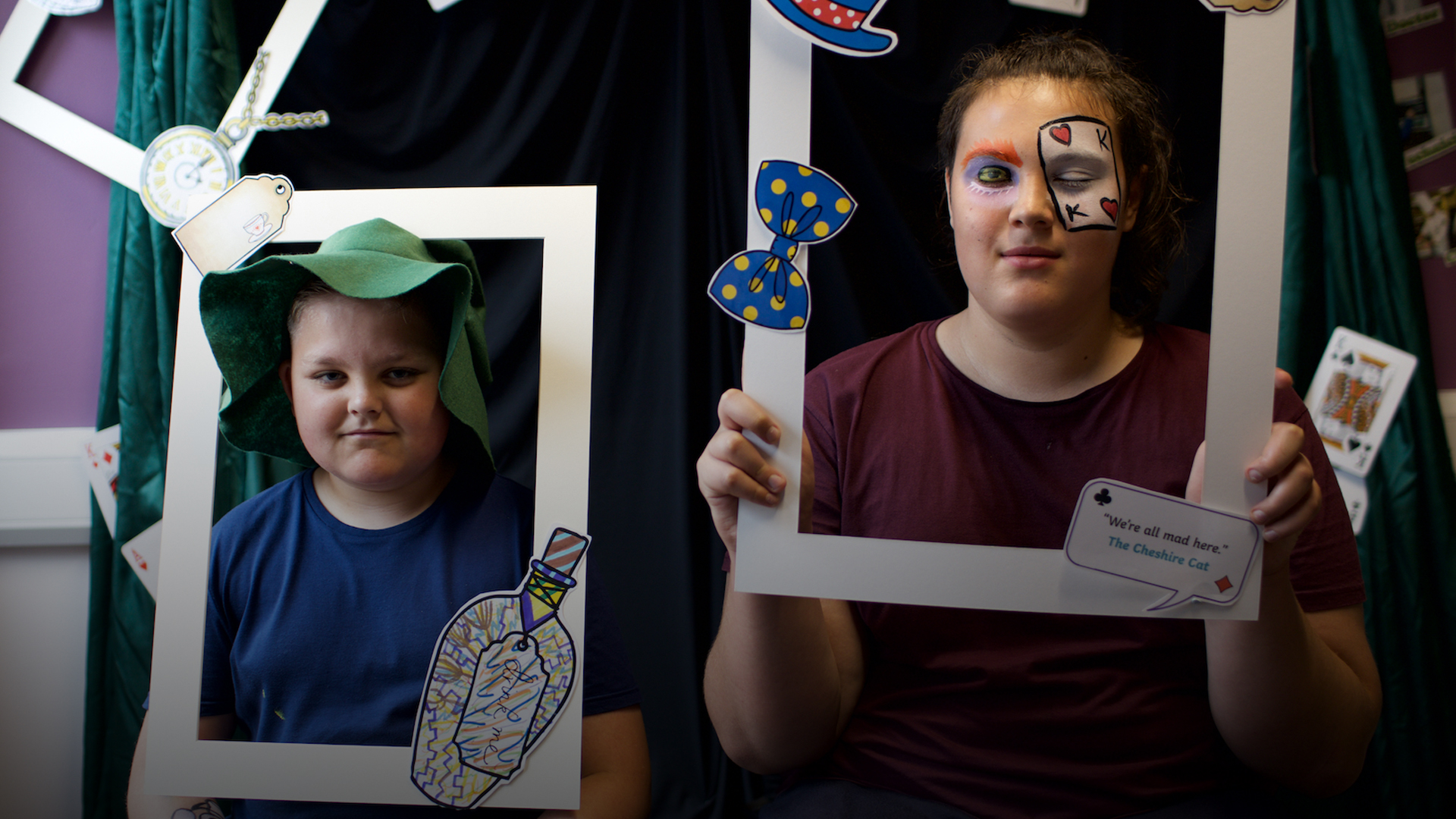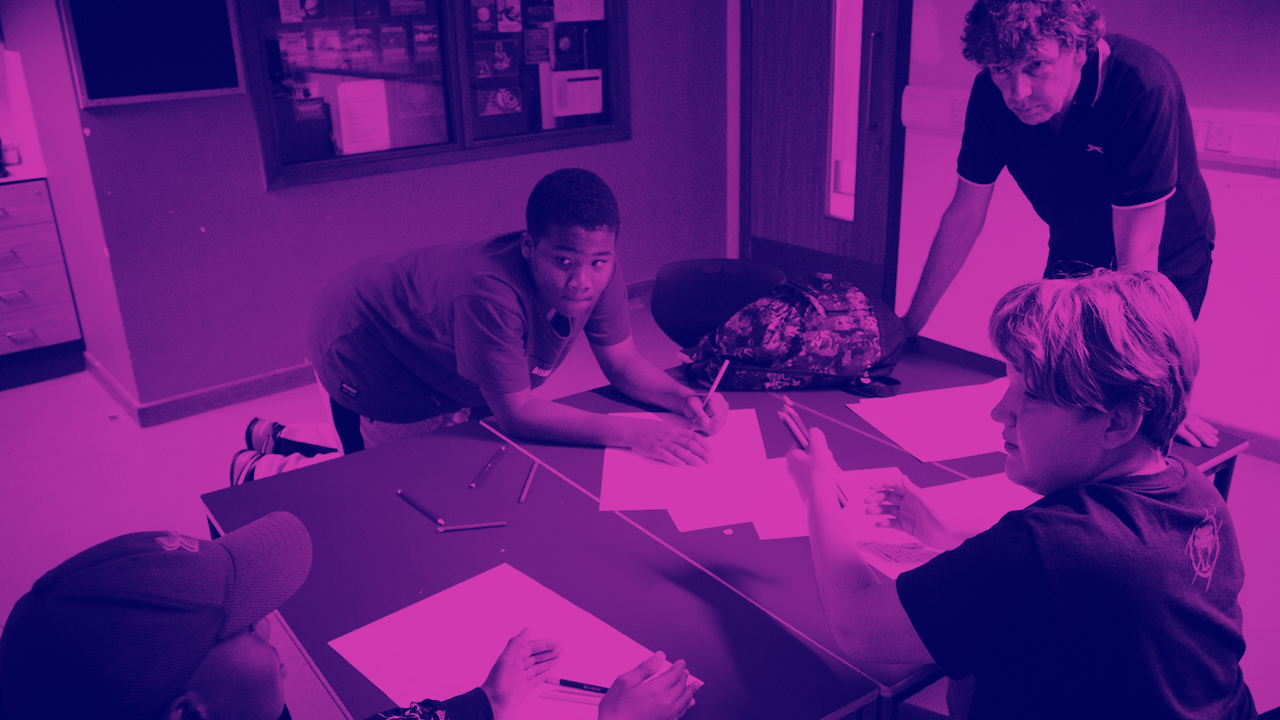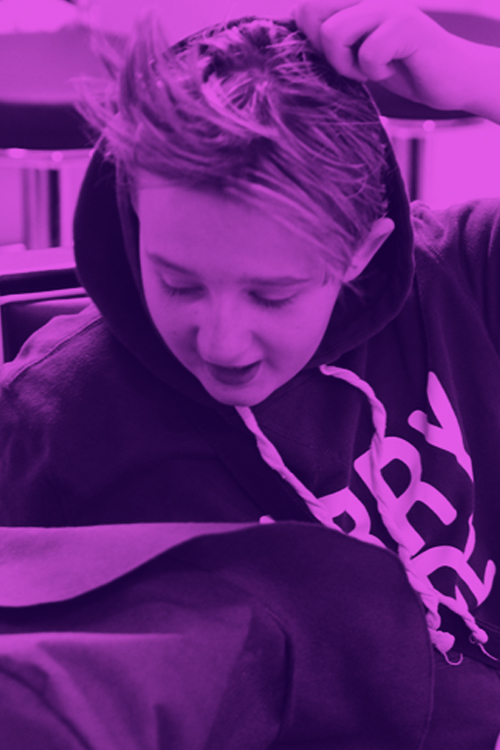Welfare at Ian Mikardo
Looking after the welfare of our students is paramount to our educational practice.
Many of our young people have histories of trauma and had adverse childhood experiences that
prove barriers to learning. Our Welfare department works closely with students, their families,
and teaching staff, ensuring that the individual’s background is not only understood, but that
it informs how we can work together to best support that young person.
Caring for our students means extending support and understanding to their families and carers too.
We have dedicated a Welfare and Family Support Practitioner who reach out to families at home, getting to know their
needs and working to build partnerships based on trust. Whether a family is facing issues with mental
or physical health, housing, access to employment or managing finances we are here to help.
We find that the success of a placement depends upon engaging with students’ parents and carers.
Our welfare team plays a crucial role in forging those relationships.
Our welfare practice is trauma informed and underpinned by an in-depth understanding of attachment theory.
We have a number of staff trained to use non-violent resistance (NVR) strategies, enabling them to
respond to highly expressed emotion and confrontational behaviour while staying calm and communicating
clearly rather than resorting to physical intervention. It is crucial that our students feel
supported and heard, and our welfare team works to ensure that every aspect of a student’s
school experience speaks to that. Staff from the welfare department often support teaching
staff to facilitate the conflict resolution process used to address issues throughout the school.
Our Lead Inclusion and Welfare Practitioner is a member of staff dedicated to bridging the gap between the curriculum learning and wellbeing needs of students. Having a link worker embedded within the welfare department helps ensure that a student’s programme of study meets their social, welfare and academic needs and targets. Lead Inclusion and Welfare Practitioner also oversees the school’s conflict resolution processes and administrates annual reviews.

Key Contacts
Lisa Tharpe
Deputy Head (IMHS) Trust Safeguarding
and Compliance Reporting Lead
lisa.tharpe@ianmikardo.com
Designated Mental Health Lead
Deputy Designated Safeguarding Lead
Jason Levine
Jason.levine@ianmikardo.com
Attendance and Welfare Coordinator
Deputy Designated Safeguarding Lead
Hazera Begum
hazera.begum@ianmikardo.com
Welfare and Family Support Practitioner
Rachel Roberts
Rachel.roberts@ianmikardo.com
Lead Inclusion and Welfare Practioner
Designated Safeguarding Lead
Lynn St Phillip-Ross
lynn.st.phillip-ross@ianmikardo.com
How we help
Working with the family
We recognise that welfare issues do not begin and end with the school day or term; the staff in the welfare department
therefore have school mobile phones which enable them to be more accessible to parents and carers.
As welfare staff work throughout the year, support is not limited to the school term. Home visits can be arranged as
and when to support families experiencing particular difficulties. During times of crisis, the welfare department
can offer additional support beyond normal working hours. This does not replace the statutory services but can
assist parents and carers to seek help from these services more effectively.
We are happy to represent parents in instances where they feel they may benefit from support, including meeting the needs of siblings attending other schools. Our Family and Welfare Practitioner runs weekly parent and carer coffee mornings. These include workshops which equip parents and carers with information and resources for dealing with key issues and challenges faced by their children.
By working with the family, we build awareness, collaboration and resilience as well as providing opportunities
for parents to improve their own education and employment prospects.
Creating support networks
Our Welfare team often works as a mediator and point of connection between those who need and those who can give help. We join parents and carers at inter-agency meetings. We provide students, parents and carers with links to other professionals such as social workers, education psychologists, the Youth Offending workers and therapeutic workers from Child and Adolescent Mental Health Services (CAMHS).
Attendance
Attendance is a crucial part of school life. High school attendance helps prepare students for adulthood and gives them access to the full range of activities on offer at school. Our Attendance and Welfare Coordinator is responsible for checking the daily attendance and liaises with parents and carers to help address obstacles to attendance. The school receives support from an Attendance and Welfare Advisor (AWA) who has fortnightly meetings with the Attendance and Welfare Coordinator to ensure that the school is meeting the students’ support needs around attendance and that poor attendance patterns are challenged.
Safeguarding
Our Welfare department leads on safeguarding, taking appropriate measures to protect our students from harm.
All our staff are trained to be aware of potential safeguarding issues and follow the school’s safeguarding procedures.
The designated safeguarding lead is based in the welfare department and liaises with senior leadership staff.
The Department Safeguarding Leader (DSL) and deputy DSL(s) liaise with the relevant statutory professionals in
each local authority the school works with. We recognise that partnership working is more than compliance with
statutory processes and meaningful collaboration with other professionals is key to the success of interventions
delivered to the families we work with.
Looking after health
We ensure students’ basic medical needs are met by working closely with the school nurse and other medical professionals,
assessing a student’s health and drawing up and implementing care plans for students with specific medical conditions.
Our school nurse is on-hand on a weekly basis to be a first point of contact for any health-related concerns.
The Attendance and Welfare Coordinator liaises with the school nurse, monitoring student health issues within school as well as helping students and their families to access health services outside of school. Our Attendance and Welfare Coordinator regularly attends dentist, optician and hospital appointments with students and their caregivers to facilitate access and engagement. We also liaise with an immunisation team, ensuring vaccinations are available and kept up-to-date at school.

Parent/Carers Resource Hub
Welcome to our Parent/Carers Resource Hub! At Ian Mikardo High School,
we understand the vital role that parents and carers play in supporting their child's education and well-being. Our safeguarding provider "SSS Training" have created a range
of resources which have been made available via the school's website, specifically designed to empower and assist you in navigating the journey of parenthood whilst keeping
your child safe.
Explore our Parent/Carers Resource Hub Here!!
Term dates for the school year
At the end of the school term, we often have whole school celebrations. Parents are informed in advance if students have an early finish on these days. Our End of summer term and new academic year 2023/24:
Autumn term 2023
Term 1: Friday 1 September 2023 - Friday 20 October 2023
INSET Day: Friday 1 September
Half Term: Monday 23 October 2023 - Friday 27 October 2023
Term 2: Monday 23 October 2023 - Friday 27 October 2023
Christmas break: Monday 25 December 2023 – Wednesday 3rd January 2024
Spring term 2024
Term: Thursday 4 January 2024 - Friday 9 February 2024
INSET Days: Thursday 4 & Friday 5 January
Half term: Monday 12 February 2024 - Friday 16 February 2024
Term 4: Monday 19 February 2023 - Thursday 28 March 2024
Easter break: Friday 29 March 2024 - Friday 12 April 2024
Summer term 2024
Term 5: Monday 15 April 2024 - Friday 24 May 2024
Half term: Monday 27 May 2024 – Friday 31 May 2024
Term 6: Monday 3 June 2024 – Tuesday 23 July 2024
INSET Day: INSET: Tuesday 23 July
Eid dates
Start of Ramadan: 10 March 2024 (Normal School Day)
Eid Al-Fitr: 10 April
Eid Al-Adha: 17 June
School hours
The school day runs from 9am to 3pm
Lessons and social learning times are broken up into 12 sessions which make up the school day.
The whole staff team meets at the start and end of the day to share information and set priorities.
After the daily de-brief Tutors contact parents to discuss relevant issues and feedback on student progress.
This helps to unite the student’s home and school worlds.
School Breakfast
Students are welcomed as they arrive and are encouraged to join in a free communal breakfast while talking to staff and looking at the papers. Social curriculum activities are also offered during breakfast so that students can start their day feeling engaged and have opportunities to use up some energy prior to formal learning. Food is eaten communally and plays an important role in how we welcome people into the school community.
School uniform
We do not have a school uniform and staff are not expected to wear office wear. This helps to shift the focus to relationships and commonality rather than drawing attention to physical difference which often creates division and highlights power imbalances between students and staff in schools.
Psychotherapist
We take a psychologically informed approach towards our educational and welfare practices at IMHS. This is facilitated by our school’s adult psychotherapist. The psychotherapist also carries out initial assessments of students and their families, which forms a part of placing a student at IMHS.
